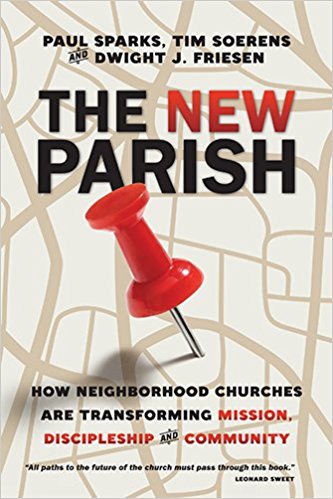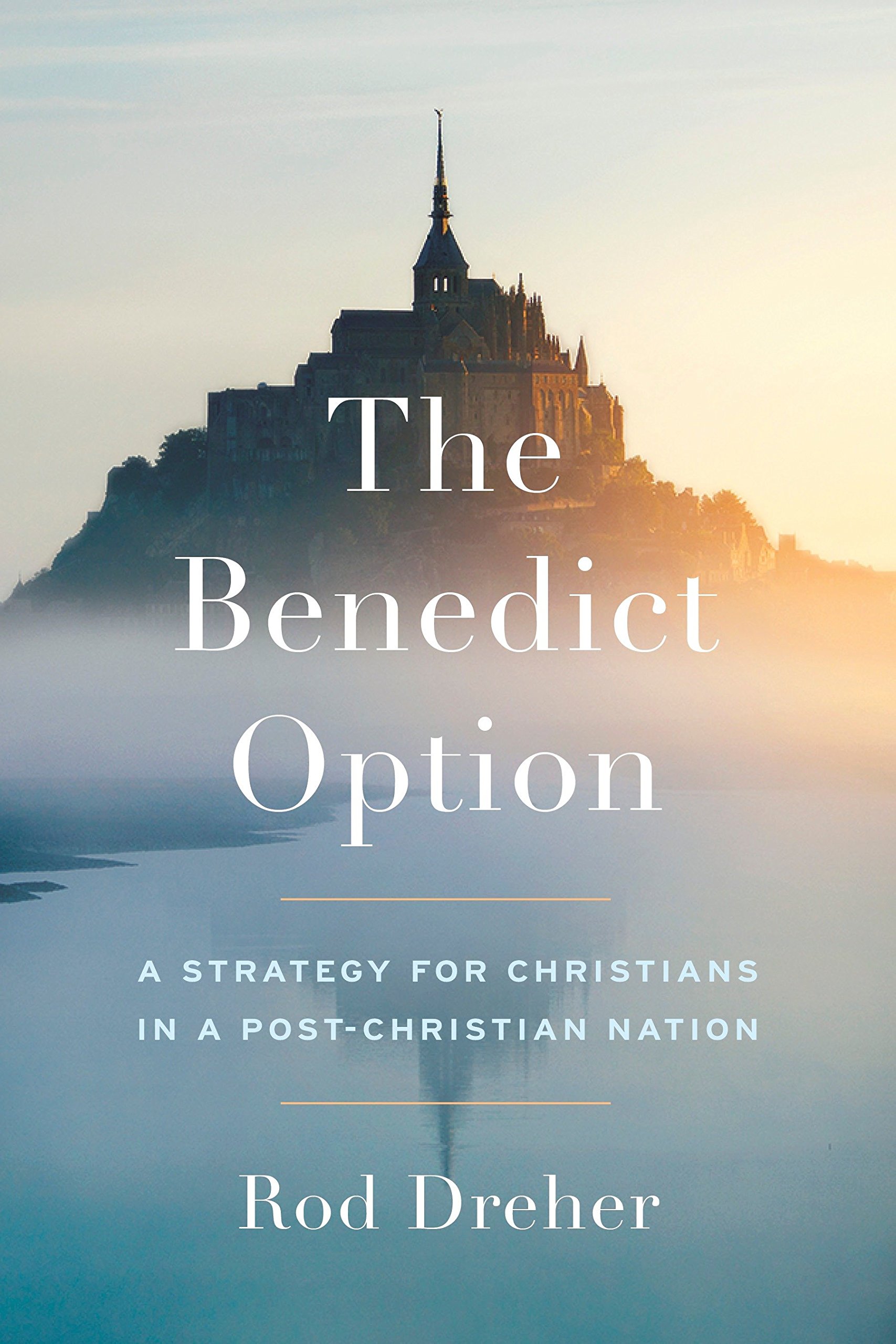
This is not a book on real-estate and yet it shares the same conclusion about what matters. “Location, location, location!” For the follower of Jesus settling into a location and planting long term roots there is the most important thing to be done. The authors present this priority in a way that would make most of us feel a little bit uncomfortable.
Most ministry leaders probably don’t get together and say “What can we do to create a gathering of disconnected individuals who choose to pay for our specialized programs and services?” Or “We want our people to think of church as a building, a place where our target audience goes to receive professionalized services.” That would be ridiculous. Even worse would be a scenario where the leaders intentionally planned to devalue peoples gifts. “We want our people to get in the habit of thinking that the only important members are the ones who can sing, or preach, or give lots of money. Everyone else should just sit in the pews, look their best and give their ten percent.” That would be insane….but that’s how many people end up feeling… This ends up happening because the Western world has lost one of the most important aspects of being the church: participating together as a family or body in the real-life context of the parish. Yet this is central to what it means to be the church. (76-77)
The authors quote Eugene Peterson in lament to the challenge of helping Christians begin to think in terms of sharing life together in a specific place as what it means to be the church.
I find that cultivating a sense of place as the exclusive and irreplaceable setting for following Jesus is even more difficult than persuading men and women of the truth of the message of Jesus.
The main thrust of the book is summarized well page 17:
It is our conviction that humans are meant to share life together, to learn to fit together as a living body in relationship with God. With one another and with/for the place to which they are called…The gospel becomes so much more tangible and compelling when the local church is actually a part of the community connected to the struggles of the people and even the land itself.
This book was one of providential timing for me. I’m already committed to the central idea of rooting down deep into a place. I already am “a known character actively seeking the flourishing of my neighbourhood.” But sometimes life is difficult in a neighbourhood, sometimes people don’t like you, sometimes there is adversity, and sometimes you make really dumb mistakes. All of this piles on, until you begin to think longingly about the beauty of becoming anonymous, detached, and unknown. To be able to preach your sermon, go home and shut the door until next Sunday starts to feel like a tantalizingly good option! It’s not, I know this, and God sent this book along at just the right time to remind me.
Spirit over strategy
The authors cautioned strongly against putting too much stock in techniques, methodologies, programs or stratagems. The shift from Spirit to strategy is a notorious weakness for religious people. We find something that works and then we pile up all our hopes and confidence on that one particular strategy. The authors remind us:
When your method takes the forefront you become distracted from what the Spirit is doing in and through your particular place…There simply is no way to place your ultimate trust in the leading of the Spirit and in your expert solutions at the same time.
The authors go so far as to say we should set programs aside so that there is time to play, hangout, and serve in our neighbourhoods. I can see how organized and vision driven would choke on some of these notions. Even I do a bit! Does it have to be either/or, can’t it be a both/and kind of thing? There is a sense in which people need to be directed. Will the admonition “go play” lead to flourishing and spiritual fruit in our neighbourhoods? Probably more is needed. But the overstatement is valid to make the point. Another little phrase that stuck with me from this book is “Practice being interruptible.” When we are carrying out our impressive plans, interruptions are not appreciated, but, it seems to me, the Spirit does his best work on a regular schedule of interruptions.
The difficultly of professional religion
Whenever money is involved people will want to know if they are getting a good return on their investment. What that means is donors want results, denominations want results, and conferences and books celebrate those with requisite results. Inevitably, it seems, an unhealthy pressure is placed on professional ministers to “get er done!” and the “er” is whatever might impress the investors. This is hardly healthy soil to grow slow, long term relationships with people in a neighbourhood. Investors want news, and “I hung out with my neighbour today” is hardly news! Re-envisioning what a successful church is away from the standard metrics of headcount’s and hype will certainly help. But even still how does one measure the success of “faithful presence”?
Primary energy
Several times in the book the authors use the term “primary energy” as a way to determine our priorities. They believe that community building endeavours should get primary energy, not the left overs. They recognize that this focus will impact worship gatherings and other more traditional programming, but they are ok with that. “Intentionally narrow the foot print of your life together.” is what they say. “Worship is a way of life, not a weekly event” is how they dismiss the objections that will be raised by faithful church goers. They say directly that they are not advocating the diminishment of worship gatherings, it’s just that they will have to be more simple. Our focus should not be on events that create minimal impact on a maximum number of people, rather we should direct our energies towards having a maximum impact on a minimal number of people.
The gospel at work in a place
Sometimes I worry a little bit when I read a book like this, is this just a gospel-empty call to be the nice guy in your neighbourhood? No. The beautiful vision of gospel transformation below, the authors argue, can only happen in fullness when followers of Jesus are living out faithful presence in neighbourhoods.
The Gospel is about reconciliation and renewal of relationships. It is about God’s plan through Christ to bring people who are caught in the cycle of fragmentation back into faithful relationships again — with God, with one another and with the created world. The wall between us is gone: Male, female, Jew, Gentile — all our differences no longer need to divide us. When you see yourself as a character in this story, one who has been given the ministry of reconciliation to bring hope and healing to broken relationships, it can become a lens for your everyday engagement in the world.
We are not missional!
These guys are definitely wary of “missional” terminology. They feel like “mission” is not what a churches identity should be reduced to. It’s too narrow, and it has a bad past. “Mission” is what missionary colonizers did in sometimes violent and often damaging ways. It wasn’t just missional churches that took it on the chin, so too did seeker churches, heritage churches, and community churches! This and several parts of the book are simply hasty generalization, but its all towards the point that the church at it’s core should be the people of God who share life together in and for a particular place. Faithful presence should lie at the bottom of whatever one’s church might look like or be philosophically inclined toward.
Put away the iPhone!
What good is a book if there is not at least one good rant? Here it is: Don’t get in the habit of using your technology as a medium to be somewhere else. Our ability to be fully present becomes seriously impaired when we do. Thanks to technology we can be everywhere and nowhere, here and elsewhere, neither inside or outside. This self inflicted ghost space pushes us away from faithful presence in our neighbourhoods and continually keeps human flourishing out of reach.



